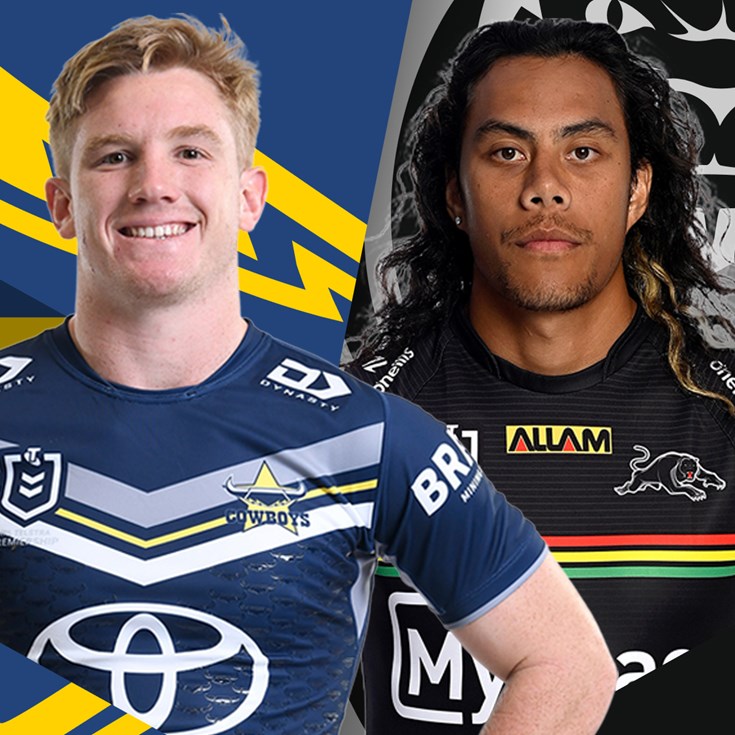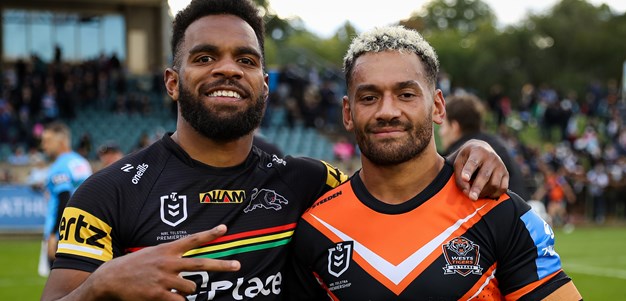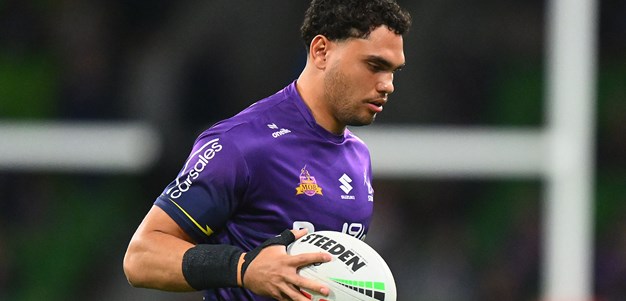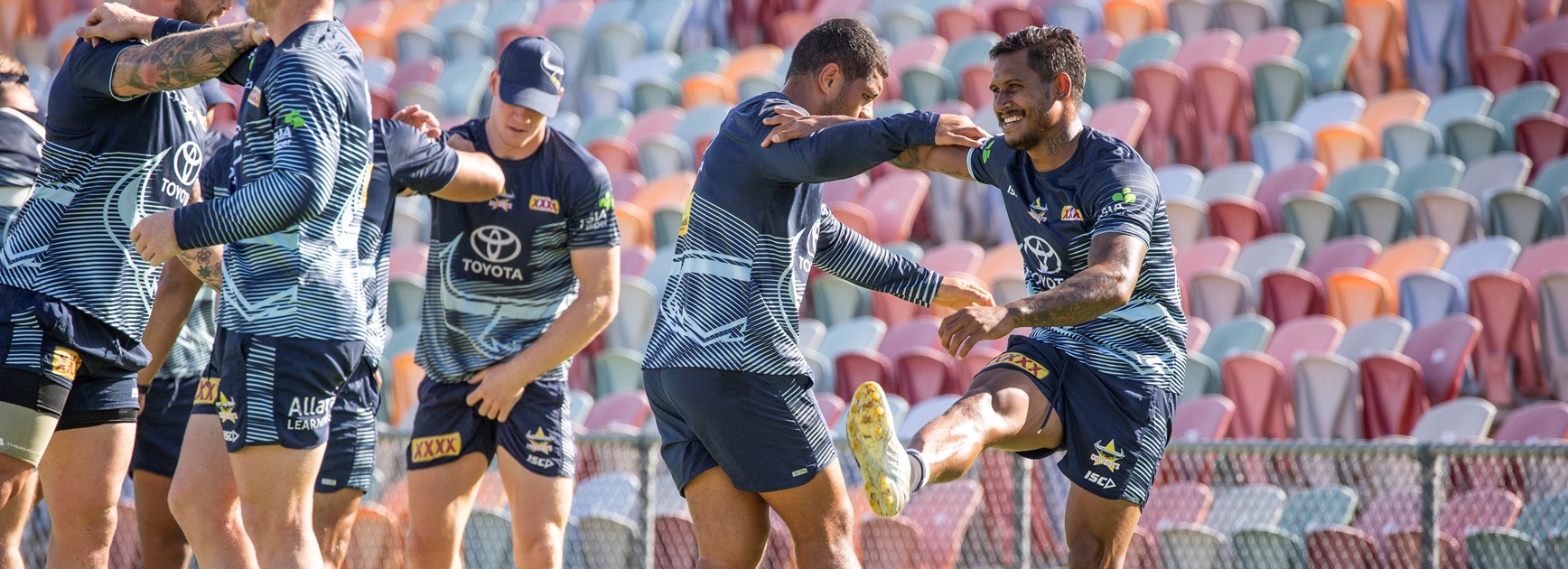
Buyer beware! The age-old principle that applies to the purchase of a used car or property is set to become the recruitment policy for wary NRL clubs.
Ben Barba on Friday became the latest off-season recruit to leave those who signed him questioning their original decision.
Not only has North Queensland coach Paul Green been left to find a fullback replacement on the eve of the 2019 season but the Cowboys are out of pocket after sacking a player they had only been able to sign after paying what St Helens chairman Eamonn McManus described as an "acceptable transfer fee".
Cowboys officials were confident they had done their due diligence on Barba after the 29-year-old was forced out of the NRL in 2016 following a second positive drugs test at Cronulla and reportedly received glowing references about his season at Saints, in which he won the 2018 Man of Steel award.
Like Todd Carney, who had last season been invited to train with North Queensland after returning from a three-year exile in Super League, the Cowboys believed the rewards for signing Barba outweighed the risks.
If CCTV footage confirms the 2012 Dally M medallist assaulted his partner at a Townsville casino on Australia Day, his professional rugby league career is over, and he is unlikely to be the last player to find himself in that position after an off-season that ARLC chairman Peter Beattie and NRL CEO Todd Greenberg have labelled a "train wreck".
Greenberg: I can't see Barba ever returning
It's why a number of clubs are beginning to shift responsibility for recruitment away from the head coach, as the Cowboys aren't the only ones having the deal with the fallout from negative publicity caused by an off-season signing.
Understandably, most coaches focus on a player's talent but the likes of Brian Canavan (Knights), Shane Richardson (Rabbitohs), Phil Gould (Panthers), Frank Ponissi (Storm), Ian Millward (Dragons), Peter Parr (Cowboys) and Brian Smith (Warriors) decide whether a potential signing is in the best interests of the club.
"It's about the person now before the player," one official told NRL.com. "The club has to have the final say on what's best for them, regardless of talent on the field."
Many of the players who have gotten into trouble during the off-season are repeat offenders and often a club can be taking over a rival club's problems when they sign a player who has been released from his contract.
While Russell Packer is hailed as an example of a player who turned his life around and proved to be a good signing for St George Illawarra in 2016 after spending a year in jail for assault, the Dragons spent 12 months assisting with his rehabilitation after he was released before he resumed playing.
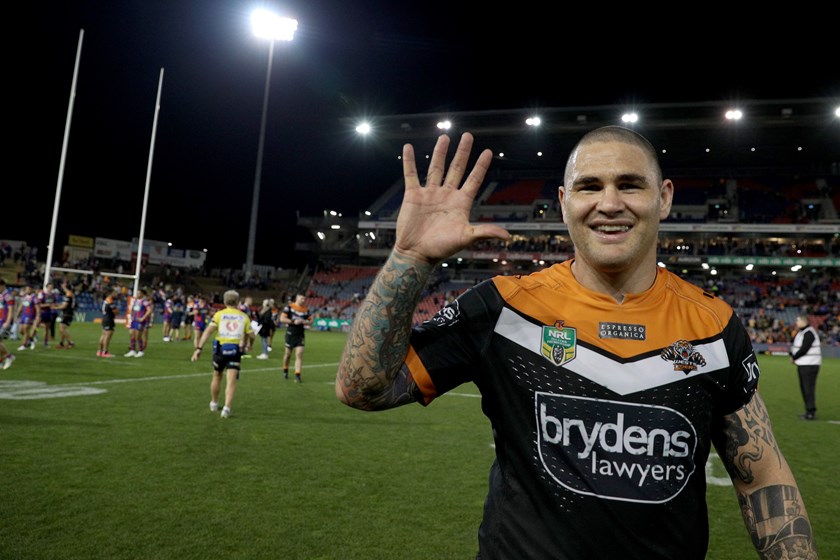
There have been other years with a high number of off-field incidents – players once got into trouble with such regularity that The Sun-Herald published a weekly "Bourbon and Beefcake Atrocity Meter", recording the number of days since the last NRL incident, in reference to the famed Kings Cross nightspot where players often found themselves in trouble.
In 1999, then NRL CEO Neil Whittaker organised a Forum on Behaviour and Alcohol Related Problems at Parliament House in Sydney, which led to the introduction of a Code of Conduct for players and officials.
A decade later, his successor, David Gallop, felt the need to appoint an independent investigator to report to a panel comprising of NRL COO Graham Annesley and former players Mark Coyne and Michael Buettner, which would review actions taken by clubs against offending players.
In comparison, the 2018 season was arguably the best on record for player behaviour, with the case to attract the most attention – an assault charge against Canberra star Jack Wighton – having stemmed from an incident during the previous off-season.
However, few can remember a worse period for the game than the current off-season in terms of the severity of the allegations and the profile of the players involved.
The views in this article do not necessarily express the opinions of the NRL, ARLC, NRL clubs or state associations.

